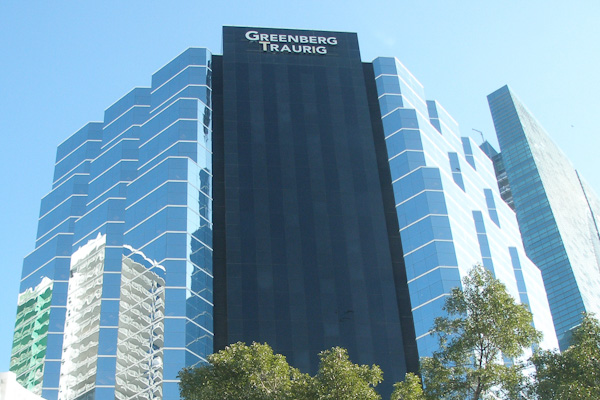Justice for All

Photo courtesy of ABA Media Relations
The American Bar Association has a long-held and deep commitment to the principle of “equal justice under law.” One of the association’s core goals is to advance the rule of law, which includes ensuring meaningful access to justice for all persons.
A century ago, in 1920, the ABA established the Standing Committee on Legal Aid and Indigent Defense to work with state and local bar associations to provide legal assistance to the poor. Decades later, while serving as ABA president in 1965, Lewis F. Powell understood the need for equal justice and led the ABA to become an early supporter of federally funded legal aid. Later, as a U.S. Supreme Court justice, Powell explained in his famous address at the ABA Annual Meeting in 1976, “Equal justice under law is not merely a caption on the facade of the Supreme Court building, it is perhaps the most inspiring ideal of our society. It is one of the ends for which our entire legal system exists.”
The belief that justice should be the same, in substance and availability, regardless of an individual’s economic status was fundamental to Powell and is ingrained in the American Bar Association’s DNA.
The ABA played a key role in the founding of the Legal Services Corp., which funds legal aid offices nationwide. Today, LSC-funded agencies provide civil legal services that help more than 1.8 million low-income people every year.
In 1964, when President Lyndon B. Johnson created the Office of Economic Opportunity as part of the War on Poverty, it quickly became apparent that neighborhood lawyers should be a key part of the effort. The next year, the ABA and Powell supported the creation of the office’s Legal Services Program, giving it the national credibility and acceptance it would need to succeed. These efforts resulted in the creation of LSC when President Richard M. Nixon signed the Legal Services Corporation Act into law in 1974.
At ABA Day, our association’s annual spring grassroots lobbying event, lawyers from across the country ask their congressional representatives to continue funding for LSC.
These funds are never enough to serve the civil legal needs of low-income Americans. The COVID-19 pandemic has increased the need as people grapple with evictions and unpaid bills. Add to that the already existing issues involving family law, consumer protection, employment disputes, the opioid crisis, natural disasters and homelessness.
Doing our part
Because the need is so great, the ABA also has extensive pro bono initiatives to compliment the extraordinary efforts of LSC. For example, the ABA formed a COVID-19 Pro Bono Network in partnership with state, local and other bar associations that began with a call for help with eviction cases but will continue to address other issues.
Through the South Texas Pro Bono Asylum Representation Project, the ABA assists immigrants, especially adults and unaccompanied children in federal custody, through legal education, representation and connections to services. The Disaster Legal Services Program, run by the ABA Young Lawyers Division and the Federal Emergency Management Agency, provides immediate temporary legal assistance to disaster survivors at no charge. The program has responded to 222 disasters in 45 states and five U.S. territories in the last 13 years. ABA Free Legal Answers provides a virtual legal advice clinic where qualifying users post civil legal questions to their state’s website and pro bono lawyers provide information and basic legal advice.
The ABA has helped millions of people with civic legal access. ABA lawyers have performed millions of hours of pro bono. But the need is great, and our nation is not providing access to justice to all who need it. We all need to help; we all need to do better if equal justice is to become a reality. To see what you can do, visit abaprobono.org today.
We all need to do better if equal justice is to become a reality.
Follow President Refo on Twitter @ABAPresident or email [email protected].



